How much immigration is there in Northern Ireland?
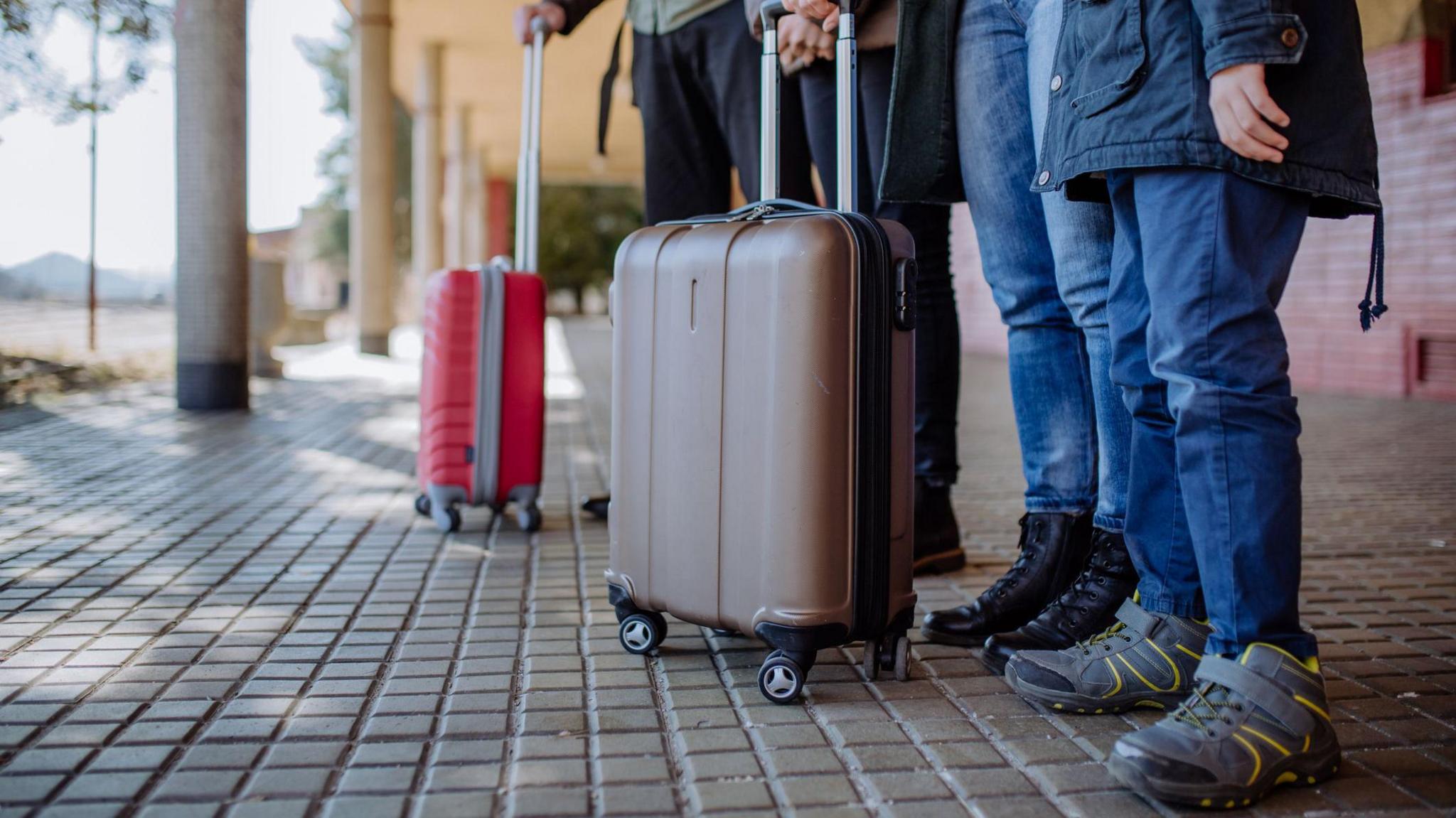
- Published
In the last week, there has been a series of racially-motivated attacks and violent disorder, following an anti-immigration protest in Belfast.
There has also been widespread disorder across the UK - which erupted after the fatal stabbing of three girls in Southport - with unrest fuelled by misinformation online.
A lot of that misinformation has surrounded illegal immigration.
BBC News NI has taken a look at migration in Northern Ireland.
How many migrants come to Northern Ireland?
Northern Ireland, generally, has low rates of immigration.
The 2021 census showed about 6% of the population had been born outside the UK or Ireland.
Almost 97% of people described their ethnicity as white.
Annual movement of people is usually expressed as net migration: the difference between the number of people arriving (immigrants) and those leaving (emigrants).
The most recent figures are for 2022 and show net immigration of 2,300 people.
Further analysis of that figure shows there was net emigration of 2,700 people from Northern Ireland to other parts of the UK but net immigration of 5,000 people from the rest of the world.
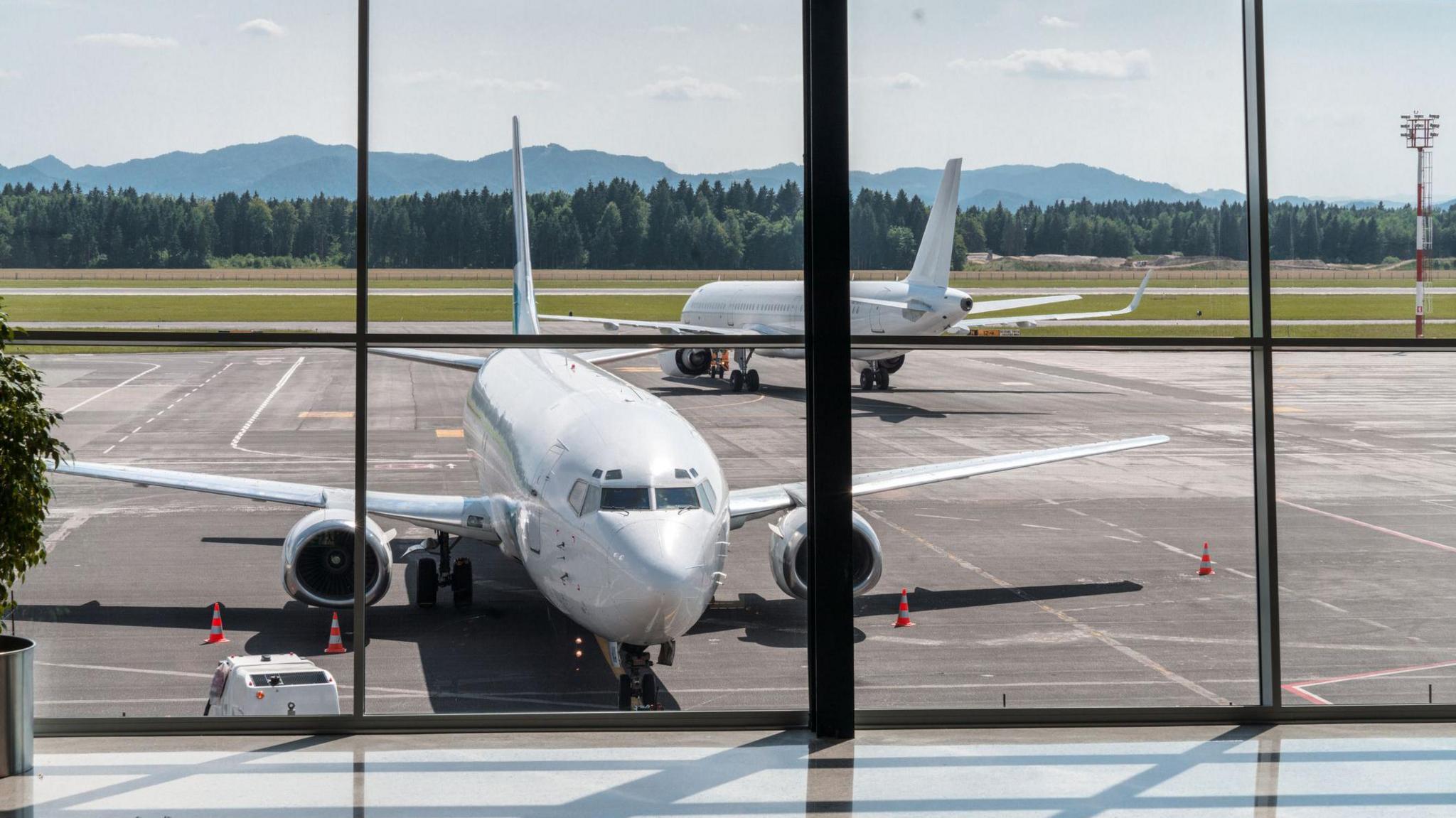
What are asylum seekers and refugees?
A refugee is a person who has been forced to leave their country in order to escape war, persecution, or natural disaster.
Refugees have a right to international protection.
This person could be a combination of all of the above, although they are asking for international protection in another country.
A person needs to apply for asylum if they want to stay in the UK as a refugee.
How many asylum seekers are there in Northern Ireland?
Data from the Home Office, external shows that a total of 2,248 asylum seekers were in receipt of support in Northern Ireland as of 31 March 2024.
Until they are granted asylum, the UK Home Office pays for their support.
How are asylum seekers housed?
Asylum seekers are entitled to be given somewhere to live when they enter the UK.
This could be a flat, house, hostel or B&B.
The Mears Group, which is contracted by the government to provide accommodation, said around 300 asylum seekers are currently being housed in hotels in Northern Ireland.
Asylum seekers cannot choose where they live, external.
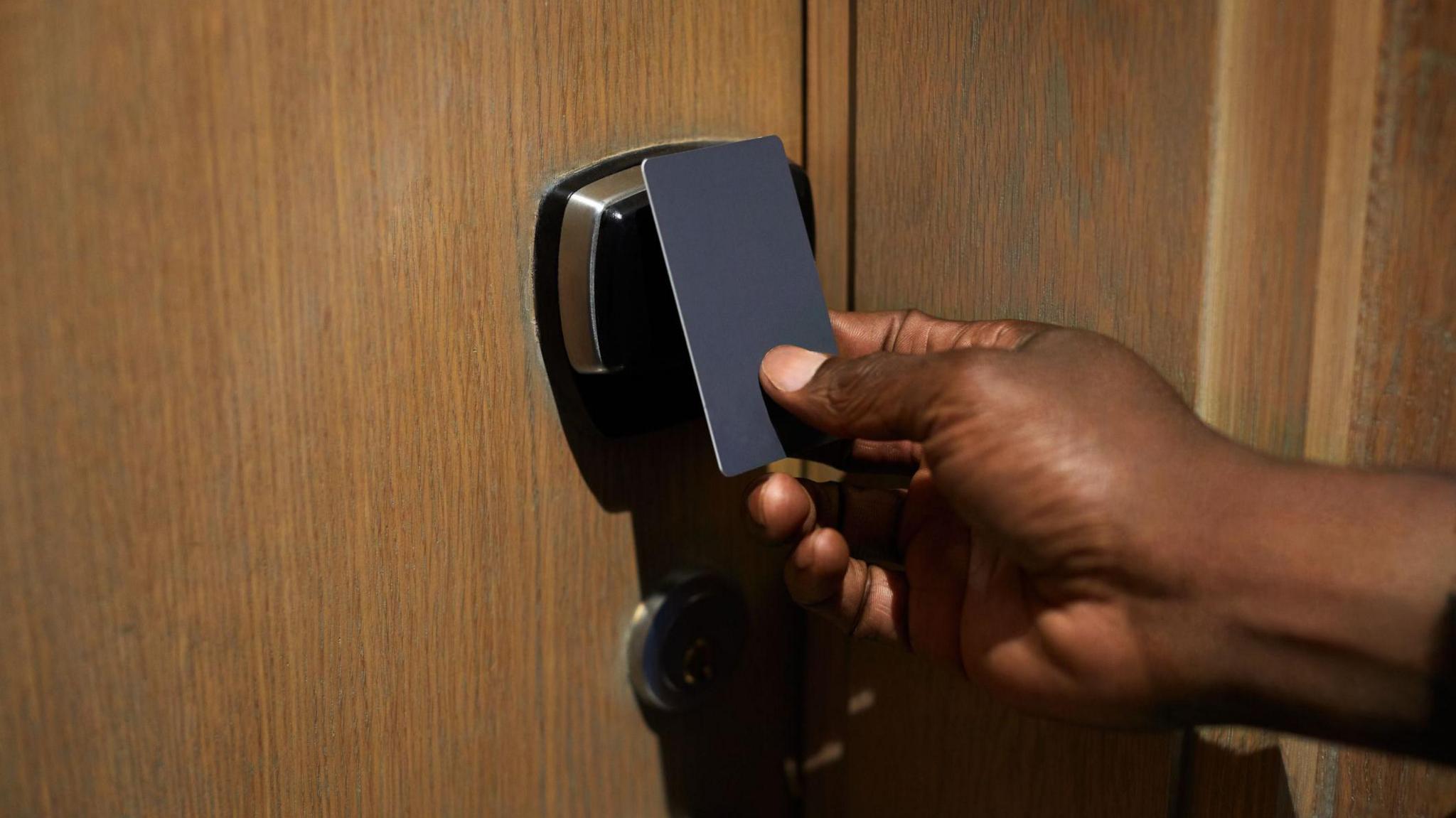
When asylum is granted - and a person is recognised as a refugee - they lose their right to stay in Home Office accommodation.
Some households choose to leave Northern Ireland to travel to other parts of UK.
Some households decline assistance and look after their own housing needs in the private rented sector or by sharing with friends and family.
Where a person needs assistance, a homelessness assessment is carried out and temporary accommodation might be given by the Housing Executive.
If the person chooses to apply for social housing, an assessment is carried out and points are allocated under the Housing Selection Scheme.
The person will then join the social housing waiting list.
Do asylum seekers receive government money?
While waiting to find out if their asylum claim will be approved, people will usually be given £49.18 a week, external.
This is to help pay for things like food, clothing and toiletries.
If a person’s accommodation provides their meals, they will get £8.86 a week.
Asylum seekers may get free NHS healthcare.
Those who claim asylum in the UK are not normally allowed to work while their claim is being considered, external.
People who have been waiting for more than 12 months on their asylum claim are able to request permission to work.
How does the social housing system work in Northern Ireland?
When someone applies for social housing with the Housing Executive, their position on the waiting list is determined by the points they are awarded, external.
Points are awarded under four categories, depending on their housing needs.
For example, someone who is homeless can get 70 points.
People who face intimidation can get 200 points.
Lawyer Sarah Creighton said people with intimidation points are some of the highest applicants on the waiting list.
Migrants and refugees sometimes “get threatened, intimidated from their homes”, she said, but not all of them will qualify for intimidation points.
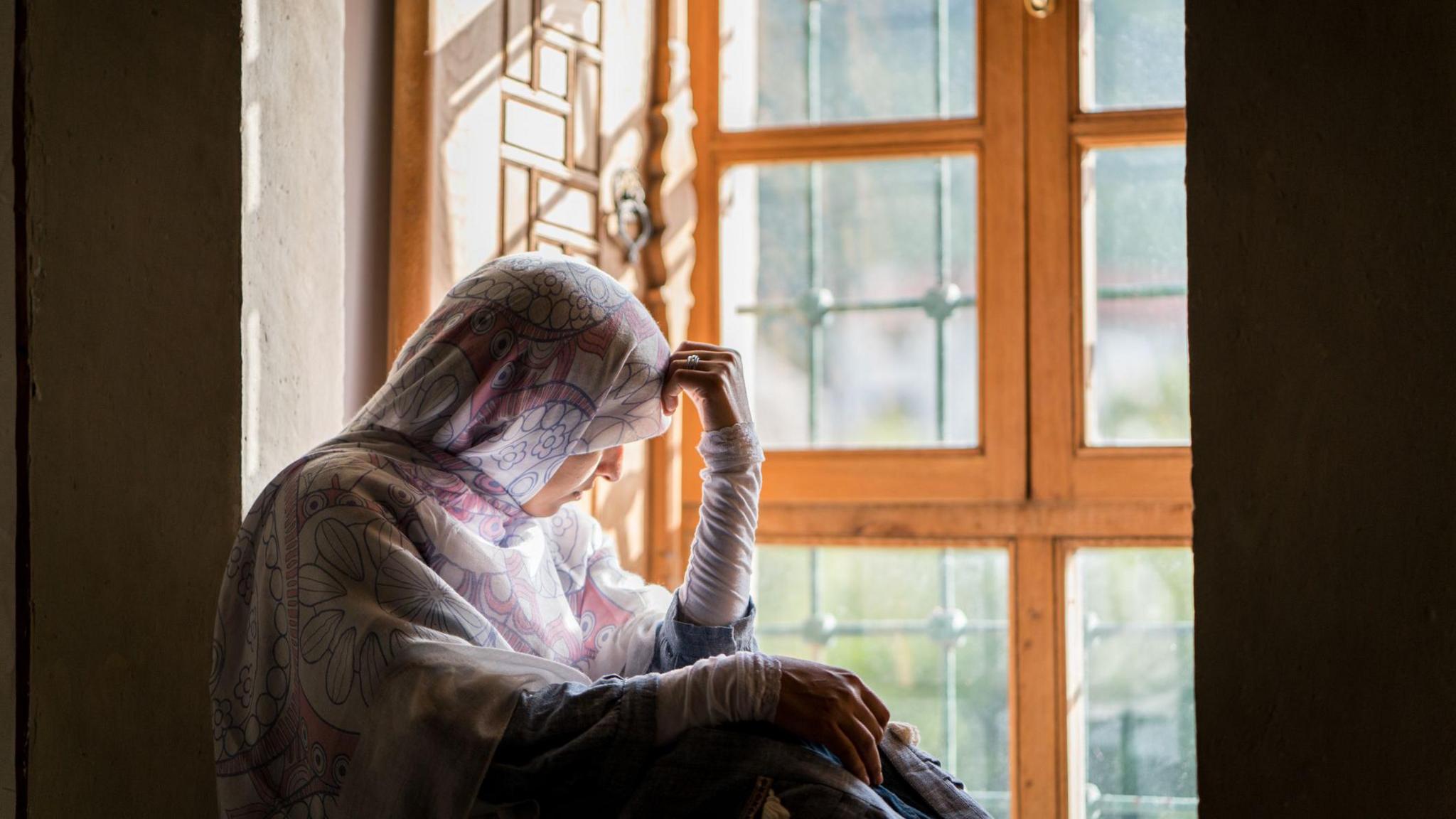
Are refugees given priority for social housing?
No, they are treated the same as everyone else on the list.
The Northern Ireland Housing Executive said when someone is given leave to remain they have the same rights as everyone else to apply for assistance with their housing.
“As such, when a household presents to the Housing Executive, it is not necessary for us to check whether they are ‘refugees’ or indeed, their ethnic background,” a spokesperson said.
“Our obligation is to assess their housing need, and their eligibility for assistance.”
The Housing Executive said it was not possible for it to confirm how many refugees it provides housing to.
What role does the Northern Ireland Executive have?
In the UK, immigration, including asylum policy, is the responsibility of the government at Westminster.
As a result, the Home Office is responsible for deciding whether a person’s application for asylum is approved and they can get refugee status.
The Northern Ireland Executive does provide some services like health, education and support for integration.
“As those seeking asylum have no recourse to public funds, departments are unable to provide some statutory services such as social housing and benefits,” a spokesperson added.
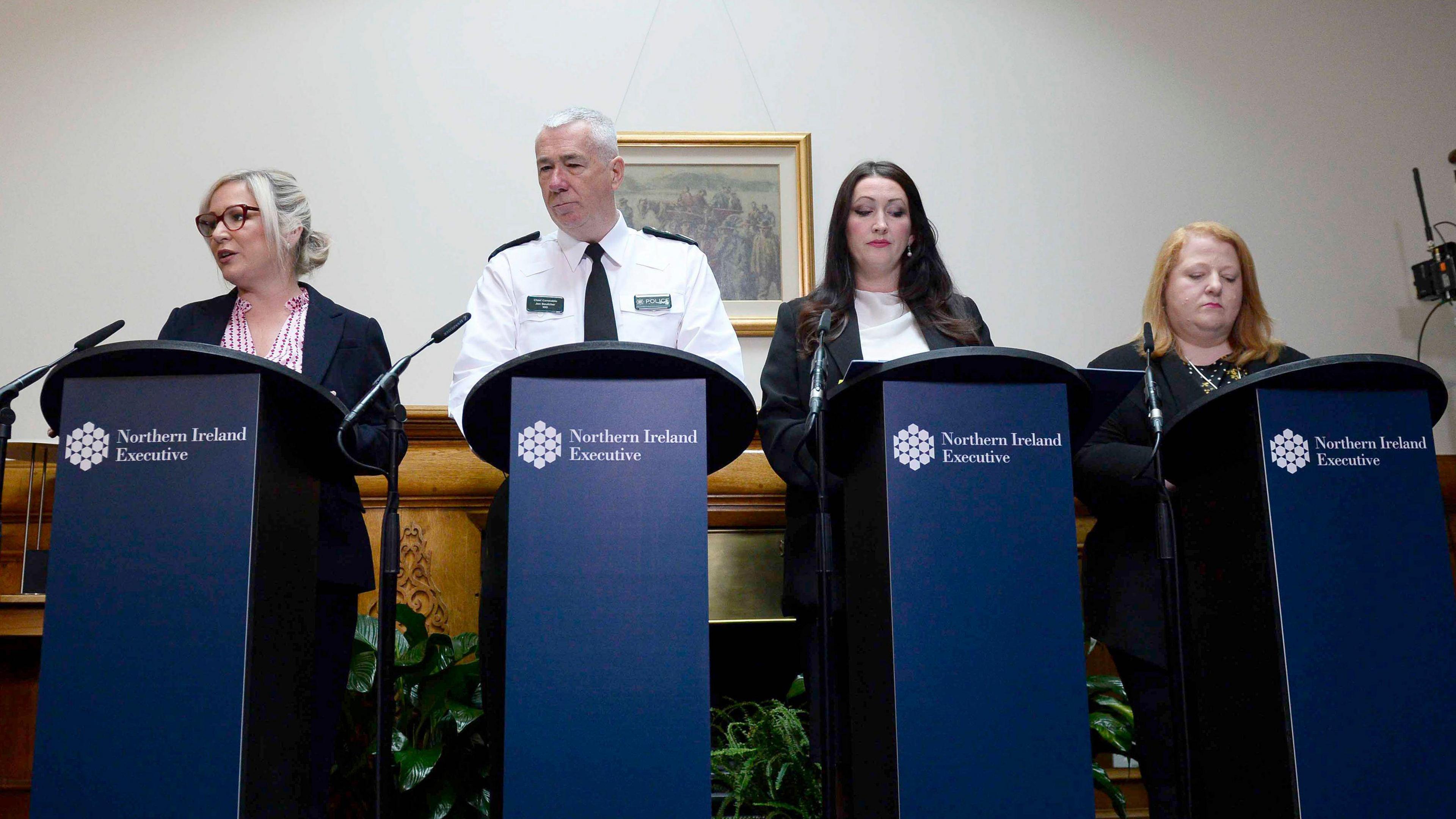
First Minister Michelle O'Neill, PSNI Chief Constable Jon Boucher, Deputy First Minister Emma Little-Pengelly and Justice Minister Naomi Long
But there are some things Stormont can do.
In November 2021, the Executive Office opened a consultation process for the Draft Refugee Integration Strategy, external.
It sets out how the Executive plans to support refugees and asylum seekers to ensure they are "treated fairly" and "do not suffer injustice".
The consultation process closed in February 2022.
The Executive has not yet published its finalised report.
An Executive Office spokesperson said the Refugee Integration Strategy “is to be brought to the Executive for agreement and published in the coming months”.
Has Brexit affected asylum in Northern Ireland?
The destination of international migrants has changed significantly since Brexit and subsequent changes to UK migration law.
Analysis by Ulster University shows a dramatic decline in migrants from the EU and increases in people arriving from India, the Philippines and Nigeria.
Article 2 of the Windsor Framework, part of the UK withdrawal agreement from the EU, is a legal obligation for the UK government not to water down the human rights provisions that flow from the Good Friday Agreement.
Many of those provisions are underpinned by EU law.
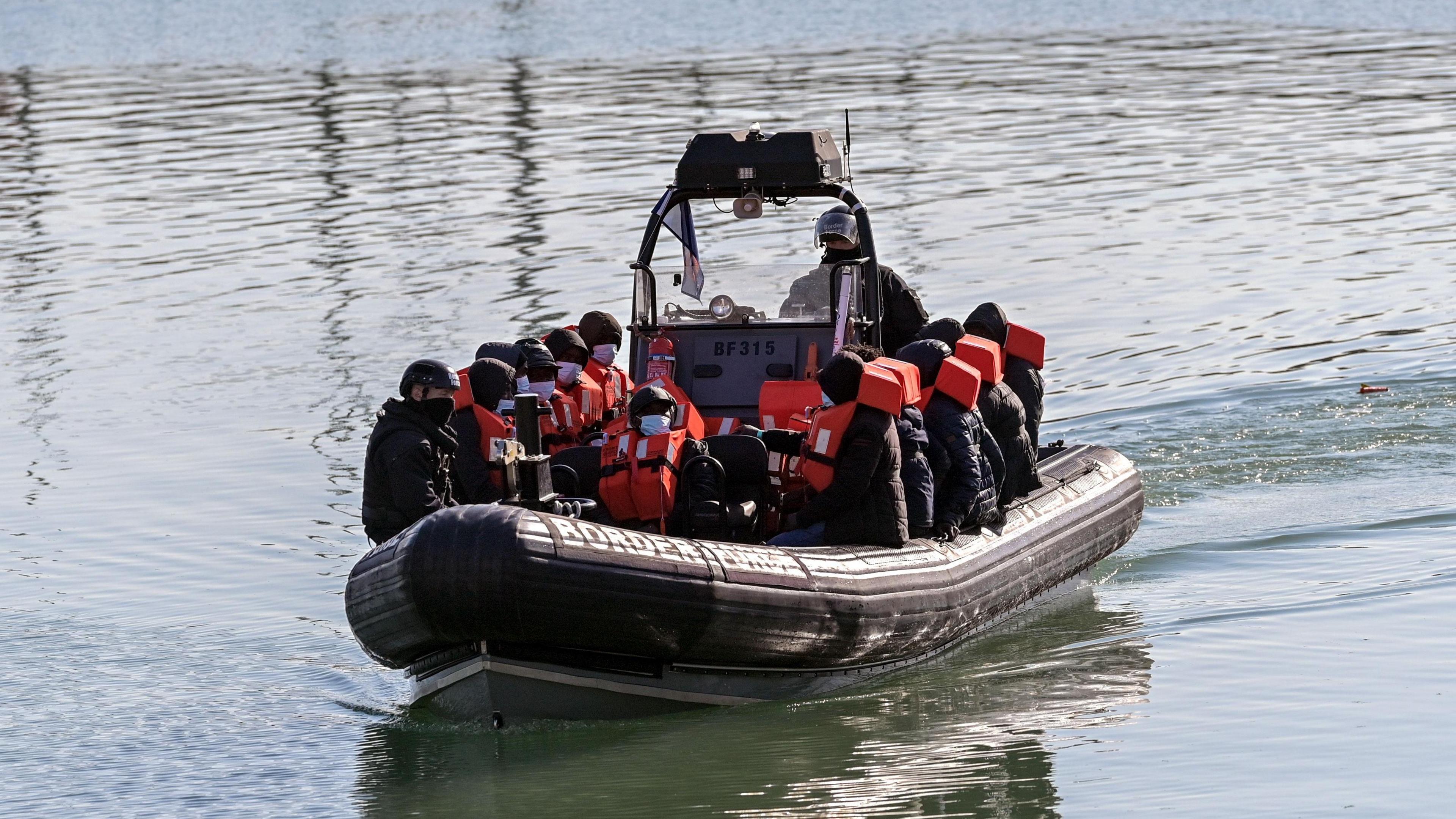
Migrants crossing English Channel disembark in Dover in May 2022
Earlier this year, the High Court in Belfast confirmed that those rights apply to asylum seekers in Northern Ireland.
That ruling meant that the previous Conservative government's controversial Rwanda deportation scheme could not be applied to people in Northern Ireland.
The Labour government has since dropped the Rwanda scheme but it does mean that in future the UK government is constrained in what asylum and migration policies it can apply in Northern Ireland and therefore perhaps to the UK as a whole.
Racially motivated hate crime in Northern Ireland
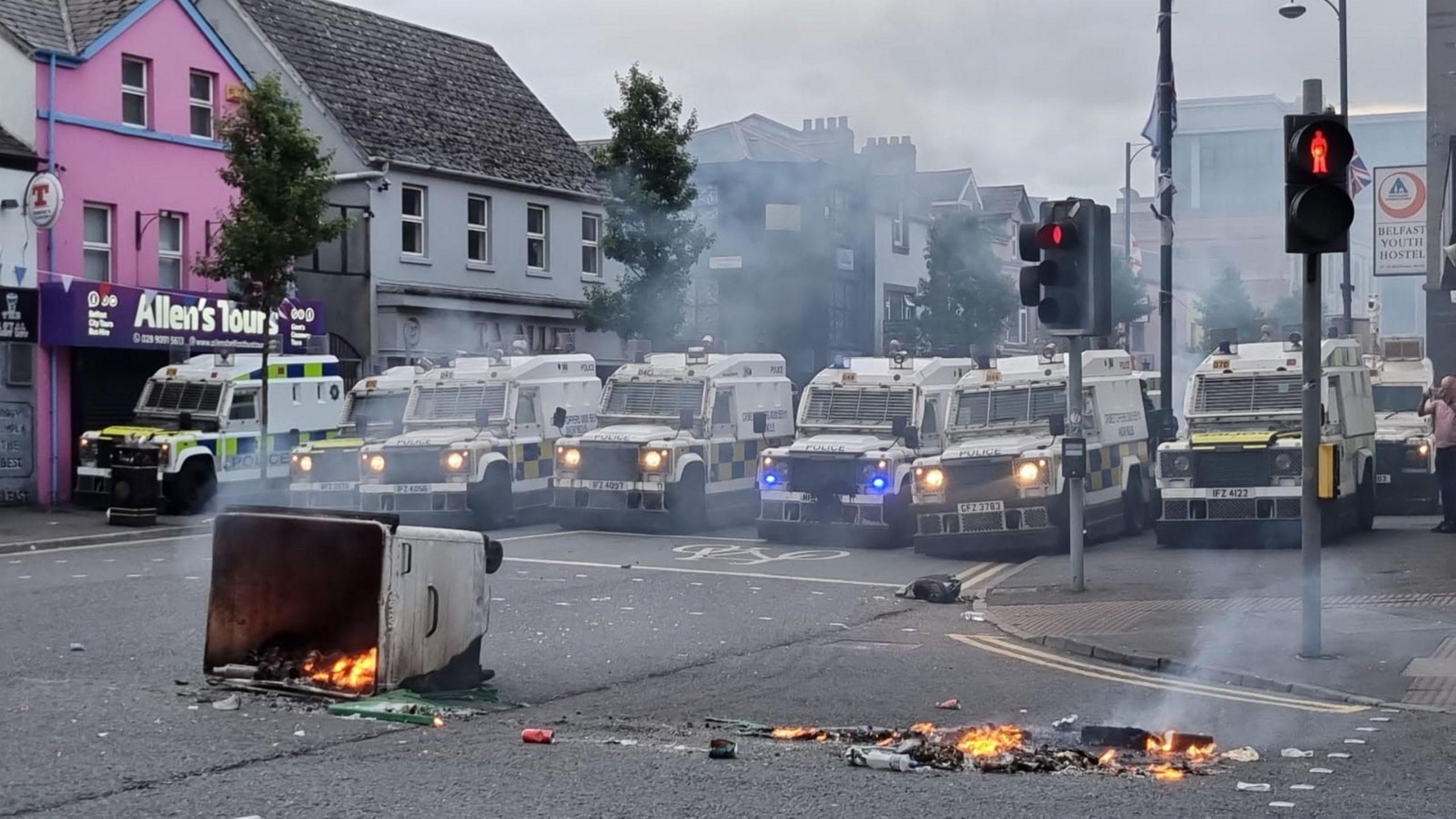
PSNI officers manning road blocks in Belfast on 3 August
In the 12 months to 31 March 2024, there were fewer hate incidents recorded across each hate motivation group when compared with the previous year, with the exception of race and faith/religion incidents.
Data from the Police Service of Northern Ireland, external show there were 132 more incidents with a race motivation recorded than the previous 12 months - rising to 1,353.
The number of crimes recorded with a race motivation fell from 880 to 839.
The number of racist incidents in 2023-24 exceeded those of a sectarian nature by 262.